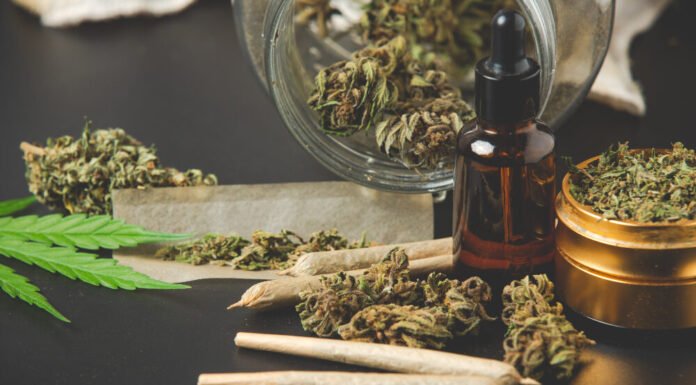Cannabis potency debates miss the mark: Limiting THC could make things worse for medical patients and consumers alike
As marijuana use becomes more widespread and legal across the United States, lawmakers have renewed their focus on the potency of cannabis. But their panic about stronger weed is rooted in misunderstanding, and if they don’t get it right, they could unintentionally harm both recreational and medical users.
The conversation around cannabis potency intensified recently, with major outlets like The New York Times calling out the industry for opposing bills that would limit THC content in cannabis products. The proposed laws, which are gaining traction in states like New York, Colorado, and Florida, would cap THC levels in cannabis flower products between 0.3% and 15%. But this approach fails to grasp the complexity of how cannabis potency works, according to experts in the field.
Dr. Peter Grinspoon, a Harvard Medical School physician and author of Seeing Through the Smoke, argues that limiting THC content could actually worsen things for medical users. People tend to adjust their consumption based on a product’s potency. If the cannabis available were weaker, users might consume more to achieve the same effects, potentially leading to greater lung damage. Grinspoon explains, “When I was growing up, one of the arguments against cannabis was that it was so weak, you had to smoke so much, and it was bad for your lungs. Now it’s stronger, and the argument is it’s so dangerous because it’s so potent.”
Besides the health implications, such regulations could increase the cost of medical cannabis, putting it out of reach for people on fixed incomes, like veterans and seniors.
The debate about marijuana potency also stems from misconceptions about what makes cannabis “strong.” Brien Hoffhine, a cultivation director at Loudbird Cannabis in Boulder, Colorado, points out that the 2018 Farm Bill, which set the legal definition of cannabis potency based on delta-9 THC, fails to account for other cannabinoids and compounds like THCA, which converts into delta-9 THC when smoked. The bill’s focus on THC alone ignores the rich and complex profile of cannabinoids that all contribute to the overall effect of cannabis.
One of the industry’s open secrets, according to Hoffhine, is that lab results for THC potency can be inconsistent. Cannabis brands sometimes shop around for labs that will report the highest THC content, leading to inflated potency claims. This can mislead consumers about the true strength of a product.
Embed from Getty ImagesMoreover, THC potency isn’t the sole determinant of the cannabis experience. There are at least 118 cannabinoids beyond THC and CBD, and these work together to create different effects, influenced by the user’s unique endocannabinoid system. Terpenes—organic compounds that provide aroma and flavour to plants—also play a role in shaping the high, steering it to be relaxing, uplifting, or focused.
Though high-potency cannabis products like concentrates can contain up to 95% THC, they often deliver a more one-dimensional experience, according to experts. Dr. Grinspoon suggests that the focus on THC can be problematic, arguing that lower-THC strains could be just as beneficial, especially when combined with other cannabinoids like CBD, which can help mitigate some of cannabis’s addictive qualities.
There’s a growing consensus among experts that a focus on THC potency misses the larger picture. Brien Hoffhine, Dr. Grinspoon, and others advocate for better education and research into cannabis as a whole, one that goes beyond simply measuring THC levels. The aim is to better understand how cannabis affects different people and to debunk the myth that higher THC is always better.
In the world of edibles, for example, some consumers may find that even the most potent gummies have no effect on them, simply because they metabolise the cannabinoids differently. This points to the deeply complex nature of cannabis and highlights why blanket potency regulations could hurt more than help.
Until lawmakers gain a better understanding of cannabis science, they will continue to struggle in crafting effective regulations. As it stands, their fearmongering over THC potency is not just misguided; it could exacerbate the very problems they hope to solve.
